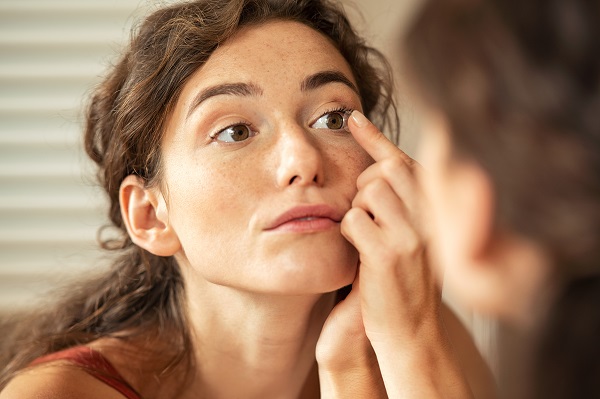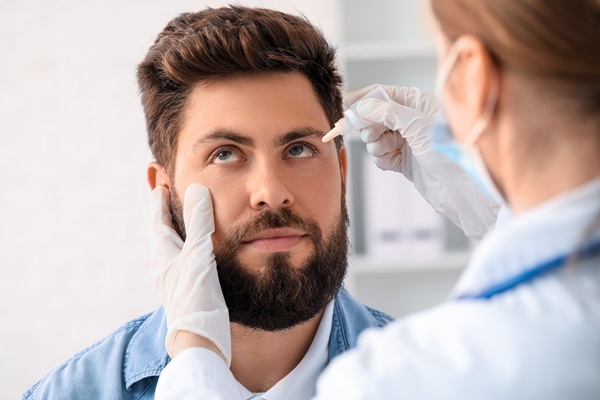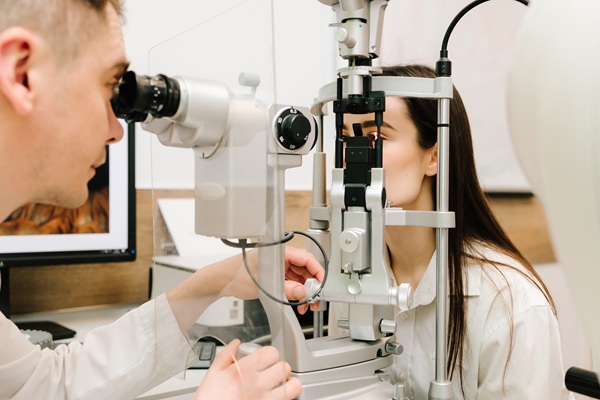3 Tips for Contact Lens Care

If you wear contact lens, you understand how important it is to take care of them. Proper care extends the life of the lenses and protects your eyes. You know you need to keep your lenses clean, but there are other things you need to do as well. Find out what your optometrist recommends for caring for your contacts. Follow these tips to maintain healthy eyes and functional lenses.
Caring for contact lenses
Caring for contact lenses is not difficult. There are three main tips that people should follow for caring for the lenses. People must be careful when removing the lenses. They should avoid wearing the lenses in the water and replace the contacts at the right times. These tips will keep people’s eyes healthy.
1.Take special care when removing contact lenses
People should wash their hands using an oil, lotion and perfume-free soap. The hands need to be dried with a lint-free towel. Once the hands are clean, the lenses can be removed. Look up or to the side and pull the lower eyelid down. Use the fingertip to move the lens to the white portion of the eye, avoiding contact with the fingernails. Many people choose to keep the fingernails short to make it easier to remove the lenses.
2.Do not wear contact lenses in the water
Contact lenses should not come into contact with water. Showering, swimming and engaging in other water-related activities while wearing contacts is dangerous. If water comes into contact with the lenses, the contacts can change shape. The contacts might swell and stick to the eye, damaging the cornea. Germs can also enter the eyes and cause infections. Always remove contacts before getting in the water.
3.Follow a replacement schedule
The optometrist provides patients with a schedule for wearing contact lenses. Patients should follow this schedule to the letter. Wearing contacts beyond the recommended schedule can lead to eye pain, corneal scratches, eye ulcers and red eyes. An overgrowth of blood vessels is also possible when contacts are worn for too long.
Daily wear contacts can only be worn during the day. These contacts must be removed every night. Eye doctors often recommend removing daily wear contacts one to two hours before bedtime. This allows the eyes to rest.
Extended or flexible wear contacts can be worn during the day and at night. Most extended wear contact can only be worn for up to seven days. However, some can be worn for as many as 30 continuous days. That is the longest length approved by the FDA. These contacts are designed to allow more oxygen to pass through the lens, which is why they can be worn at night.
Take care of your contact lenses
Contact lenses allow you to see without wearing glasses. While lenses are convenient, you must take proper care of them. Be careful when removing your contact lenses and do not wear them in the water. You must also follow a replacement schedule for your contacts.
Request an appointment here: https://brighteyesny.com or call Bright Eyes Optometry at (914) 730-9574 for an appointment in our New Rochelle office.
Check out what others are saying about our services on Yelp: Contact Lens in New Rochelle, NY.
Recent Posts
Dry eye treatment can significantly improve comfort, vision, and overall quality of life for individuals dealing with this common yet often frustrating condition. Dry eye occurs when the eyes do not produce enough tears or when the tears evaporate too quickly, leading to symptoms such as burning, redness, blurred vision, and a gritty sensation. Effective…
Ophthalmologist and optometrists are two of the main eye care professionals. Both play an important part in helping you maintain the health and function of your eyes. However, while each type of eye doctor provides vision care, knowing the care you need can be confusing. Choosing the appropriate eye care provider depends on individual needs,…
Sunglasses have become a part of many people's wardrobes; however, they are also a great tool for protecting the eyes. Along with playing a large role in our daily lives, eyes are also sensitive to many things—sunlight being one of them. It is easy for one's eyes to sustain damage from direct sunlight exposure. Thankfully,…
A comprehensive eye exam does more than assess vision; it can also reveal early signs of various health conditions. Many systemic diseases affect the eyes before other symptoms appear, making regular exams essential to overall health care. Optometrists use advanced diagnostic techniques to detect conditions beyond vision problems, allowing for early intervention and treatment.Routine eye…


